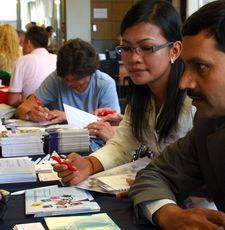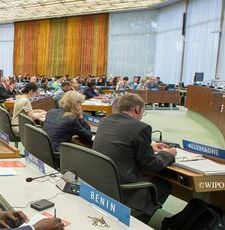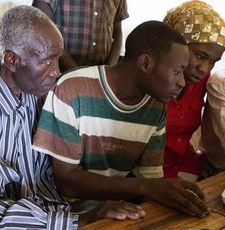ABOUT THE RESOURCE
In 2011-2013 EIFL provided financial support to 34 projects that implemented national and institutional open access (OA) advocacy campaigns to reach out to research communities and OA publishing initiatives.
Through small grants and support from their own institutions, the projects engaged in a wide variety of campaigns and activities, including: holding workshops, creating websites, building institutional OA repositories, creating e-learning courses, and implementing OA publishing platforms.
The case studies resulting from the projects reveal impressive first-time achievements and will help increase the availability of research literature in developing and transition countries.
Learn more about the key achievements for this national OA campaign in Ghana below. You can access the full case study (strategies, tactics and tools, success stories and lessons learnt) by clicking on the download button.
About the project in Ghana
The objective of the 2011 project was to create awareness of OA institutional repositories (IRs) as essential to scholarship and research; demonstrating OA’s benefits to researchers, institutions, the country and the society as a whole, and also the significant economic, social and educational benefits of making research output available without financial, legal and technical barriers to access.
Primary audience: government officials, lecturers, researchers and information professionals.
Key Achievements
- A high-level meeting, backed by the Association of African Universities (AAU), was attended by about 100 heads of tertiary institutions, directors from Ministries, Departments and Agencies, and researchers and librarians from Ghana and other African countries; they gained a better understanding of OA policies and OA IRs and they are now empowered to discuss a national OA policy.
- Two radio talk shows for the general public, government officials and scholars to inform them about OA/IR issues.
- Distribution of flyers and bookmarks at conferences, workshops and other gatherings of scholars.
- The Kwame Nkrumah University of Science and Technology (KNUST) repository (ir.knust.edu.gh/) was designated as the national OA repository for institutions currently without OA repositories.
- KNUST introduced an OA mandate.
- An (ir.ucc.edu.gh/dspace) OA IR at the University of Cape Coast was launched and another one containing research outputs funded by the ministry is in progress.
SHARE / PRINT









